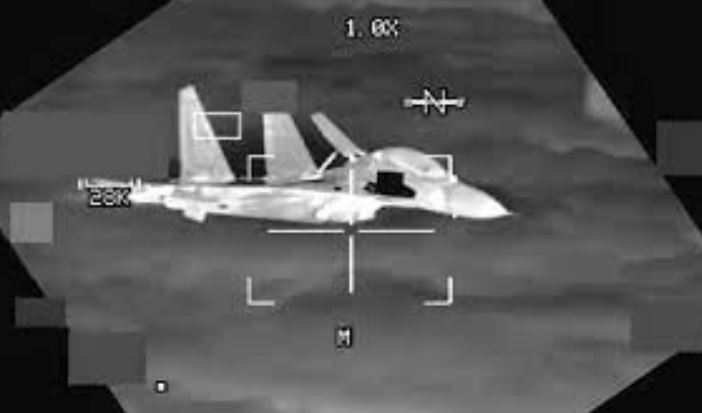A recent incident over the South China Sea has escalated tensions between the United States and China. According to the United States military, a Chinese fighter jet came dangerously close to a U.S. Air Force B-52 bomber in a risky nighttime maneuver that nearly resulted in a mid-air collision.
The pilot of the Chinese J-11 jet allegedly flew in an “unsafe and unprofessional manner” and at an “uncontrolled excessive speed,” said the U.S. Indo-Pacific Command in a statement. A video released by the U.S. military shows the close encounter, which occurred in international airspace and could have had catastrophic consequences.
This incident comes amid a backdrop of heightened friction between the two nations over various issues, including national security, economic competition, and territorial disputes. Notably, China’s Foreign Minister, Wang Yi, arrived in the United States for meetings with U.S. officials on the same day the Pentagon issued its statement. The encounters between U.S. and Chinese military assets in contested regions, such as the South China Sea, have been a source of ongoing concern.
China, for its part, has not responded immediately to the Pentagon’s statement. In the past, Chinese officials have often characterized such air intercepts as reasonable responses to foreign military patrols that they perceive as a threat to their nation’s security.
While China’s military intercepts of U.S. aircraft are not new, this latest near miss is part of what the Indo-Pacific Command describes as a “dangerous pattern of coercive and risky operational behavior” by Chinese military aircraft. These incidents have occurred in international airspace over both the South China Sea and the East China Sea, which separates China from Japan. The U.S. has made it clear that it will continue to operate in accordance with international laws, emphasizing the importance of flying and sailing safely and responsibly.
The Pentagon released a report to Congress this month, revealing that there have been over 180 intercepts of U.S. aircraft by Chinese military forces in the Asia-Pacific region since the fall of 2021. This figure is substantially higher than in the previous decade and highlights a growing concern.
China’s claim to approximately 90% of the South China Sea, including waters thousands of miles from the Chinese mainland, has raised alarm not only in the United States but also across Asia. China has been asserting ever-greater control over the sea, in part through the construction and fortification of outposts and airstrips on disputed island chains, leading to territorial disputes and heightening regional tensions.
This incident underscores the importance of safe and responsible military conduct in international airspace and waters, particularly in areas where territorial disputes are ongoing. As both nations continue to assert their interests and assert control over contested regions, the risk of unintended escalations remains a significant concern. With political and military leaders on both sides needing to manage these situations prudently, international diplomacy and open lines of communication will be essential in preventing incidents like this from spiraling into more significant conflicts.
While the U.S. and China have engaged in dialogues on various aspects of their complex relationship, incidents like these continue to test the boundaries of responsible behavior. Both nations will need to find ways to prevent such confrontations from undermining broader diplomatic efforts.

